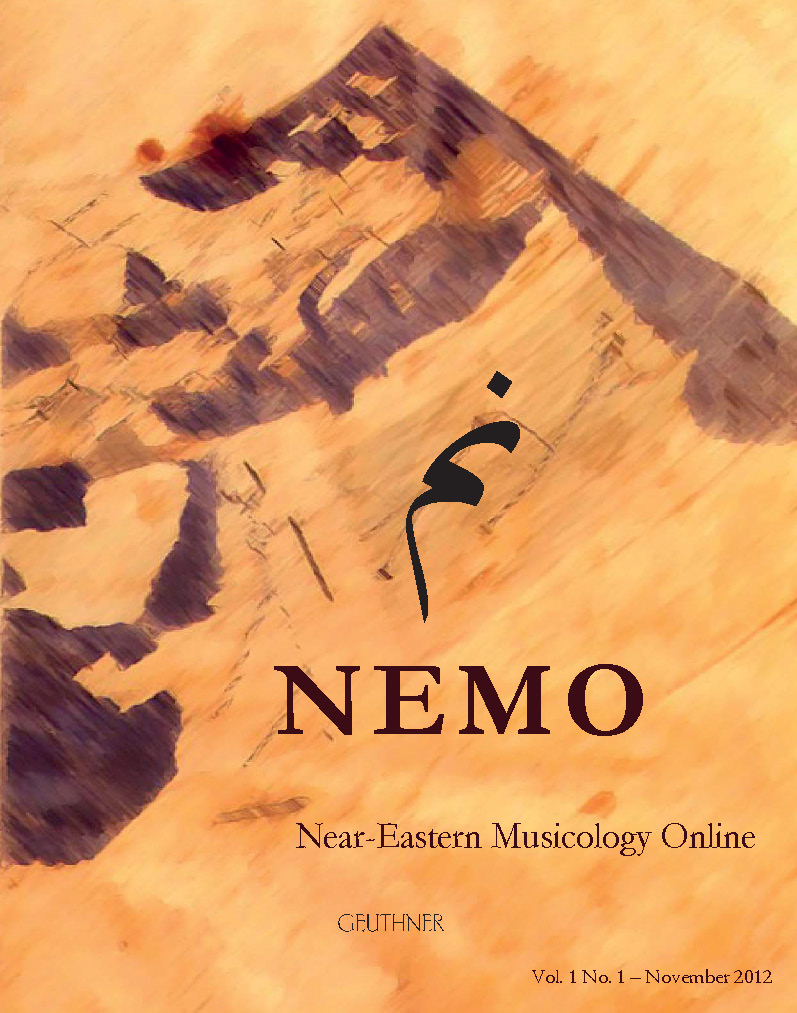English
[French translation below]
NEMO-Online is delighted to propose this new article by Amine Beyhom on notational tools and graphical analyses of melody and rythm.
Musical notation has been reputed as disqualified for the analysis of “Foreign” musics since – at least – the experiments of Charles Seeger with the Melograph. It is nevertheless still used as the main analytic – and teaching – tool for these musics in most researches in musicology, and today in the teaching of these musics in autochthonous conservatories. Seeger’s experiments brought at his time cutting-edge solutions – and alternatives – to score notation but, surprisingly enough, these solutions seem to have not worked out very well in the long run.
Beyhom proposes a voluminous dossier including three parts and relying on the pioneering works of Seeger – and other ethnomusicologists – as well as on the improvements of his method that we have witnessed in the last decades. The first part expounds the past, and on-going debates about the (mis-) use of score notation as applied to “Foreign” musics, while the second part offers a retrospective of Maqām music notation. The third part of the dossier describes different tools of pitch and spectrum analysis which help understand – and listen better to the analyzed music while exposing, in fine, the author’s work and propositions for the implementation of video-animated analyses in the teaching of ethnomusicology as one major basis for this teaching. The dossier is accompanied by a short power point show (PPS) and 41 video-animated analyses (total time = 2 h 13 m).
Amine Beyhom: “MAT for the VIAMAP – Maqām Analysis Tools for the Video-Animated Music Analysis Project,” Near Eastern Musicology Online 4 7 |2018-11| p. 145–256.
- Additional material:
- Power Point Show proposing various graphic analyses
- 41 video-analyses of various songs, all available on the CERMAA Channel (https://www.youtube.com/channel/UCMkvejmjkX181SR-zXfZsbw/videos) and including:
- Video-analysis of Hurrian Song no. 6 adapted by Richard Dumbrill/Amine Beyhom/Rosy Beyhom and performed by Lara Jokhadar (also available on the CERMAA Channel)
- Video-analyses of Byzantine chants (http://foredofico.org/CERMAA/analyses/byzantine-chant):
- Kyrie Ekekraxa by Petros Byzantios (20 video-analyses including half-tempo analyses)
- Axion Estin by Anonymous (14 video-analyses including template and half-tempo analyses)
- Video-analyses of Arabian Maqām music (http://foredofico.org/CERMAA/analyses/maqam-analysis):
- Seven Maqāmāt by reciter Muḥammad al-Ghazālī (with a half-tempo version)
- Ahlan bi-Ghazālin performed by sheikh ʿAlī Maḥmūd (with a half-tempo version)
- One video-analysis of a Breton song (from Brittany in France): http://foredofico.org/CERMAA/analyses/breton-music):
- Ar bern plouz (traditional) performed by Breton singer Manu Kerjean (with a third-tempo version)
Français
Nous avons le plaisir à NEMO-Online de publier ce nouvel article par Amine Beyhom sur les outils de notation et d’analyse graphique de la mélodie et du rythme.
La notation musicale est réputée être disqualifiée pour les analyses de musiques “étrangères” et ce depuis, au moins, les expériences de Charles Seeger avec le mélographe. Il n’en reste pas moins que la notation classique reste l’outil principal d’analyse de ces musiques dans les recherches musicologiques, et de leur enseignement dans les conservatoires locaux. Les méthodes de Seeger étaient à l’avant-garde de la recherche pour une analyse – et une notation – alternative des musiques traditionnelles mais, de manière assez surprenante, ne semblent pas avoir pris racine dans l’enseignement de l’ethnomusicologie.
Beyhom propose un dossier volumineux en trois parties, basé sur l’oeuvre pionnière de Seeger – et d’autres ethnomusicologues – ainsi que sur les améliorations de cette méthode apportées au fil des recherches par ses successeurs. La première partie retrace les débats soulevés par l’utilisation (ou non) de la notation musicale classique pour les musique non occidentales – notamment non semi-tonales – tandis que la deuxième partie est consacrée à une courte rétrospective historique de la notation de la musique du maqām. La troisième partie décrit divers outils d’analyse des hauteurs et du spectre d’une mélodie qui sont une aide à l’analyse – et à la compréhension, sinon à une meilleure écoute – de ces musiques. En conclusion l’auteur appelle à implémenter l’enseignement des analyses vidéo-animées de hauteurs dans l’enseignement courant de l’ethnomusicologie, comme outil principal d’analyse des musiques “autres”.
Le dossier est accompagné d’un fichier Power Point contenant quelques exemples d’analyse avec curseur se déplaçant horizontalement sur l’écran, et de 41 analyses vidéo dont le temps total s’élève à 2 heures et 13 minutes.
Amine Beyhom: “MAT for the VIAMAP – Maqām Analysis Tools for the Video-Animated Music Analysis Project,” Near Eastern Musicology Online 4 7 |2018-11| p. 145–256.
- Matériau additionnel:
- Fichier Power Point proposant des analyses diverses
- 41 analyses vidéo de chants, publiées sur le canal YouTube du CERMAA (https://www.youtube.com/channel/UCMkvejmjkX181SR-zXfZsbw/videos) et incluant:
- Une analyse vidéo du chant hourrite Hurrian Song no. 6 adapté par Richard Dumbrill/Amine Beyhom/Rosy Beyhom and chanté par Lara Jokhadar (également disponible sur le canal YouTube du CERMAA)
- 34 analyses vidéo de chants byzantins (http://foredofico.org/CERMAA/analyses/byzantine-chant) incluant:
- Kyrie Ekekraxa par Petros Byzantios (20 analyses vidéo incluant des versions en demi-tempo)
- Axion Estin par Anonyme (14 analyses vidéo incluant des versions en demi-tempo)
- Analyses vidéo de musique arabe du maqām (http://foredofico.org/CERMAA/analyses/maqam-analysis) incluant:
- Seven Maqāmāt par le récitant Muḥammad al-Ghazālī (avec une version en demi-tempo)
- Ahlan bi-Ghazālin cantillé par le cheikh ʿAlī Maḥmūd (avec une version en demi-tempo)
- Une analyse vidéo de chanson bretonne (http://foredofico.org/CERMAA/analyses/breton-music):
- Ar bern plouz (traditionnel) chanté par Manu Kerjean (avec une version en tiers-tempo)


